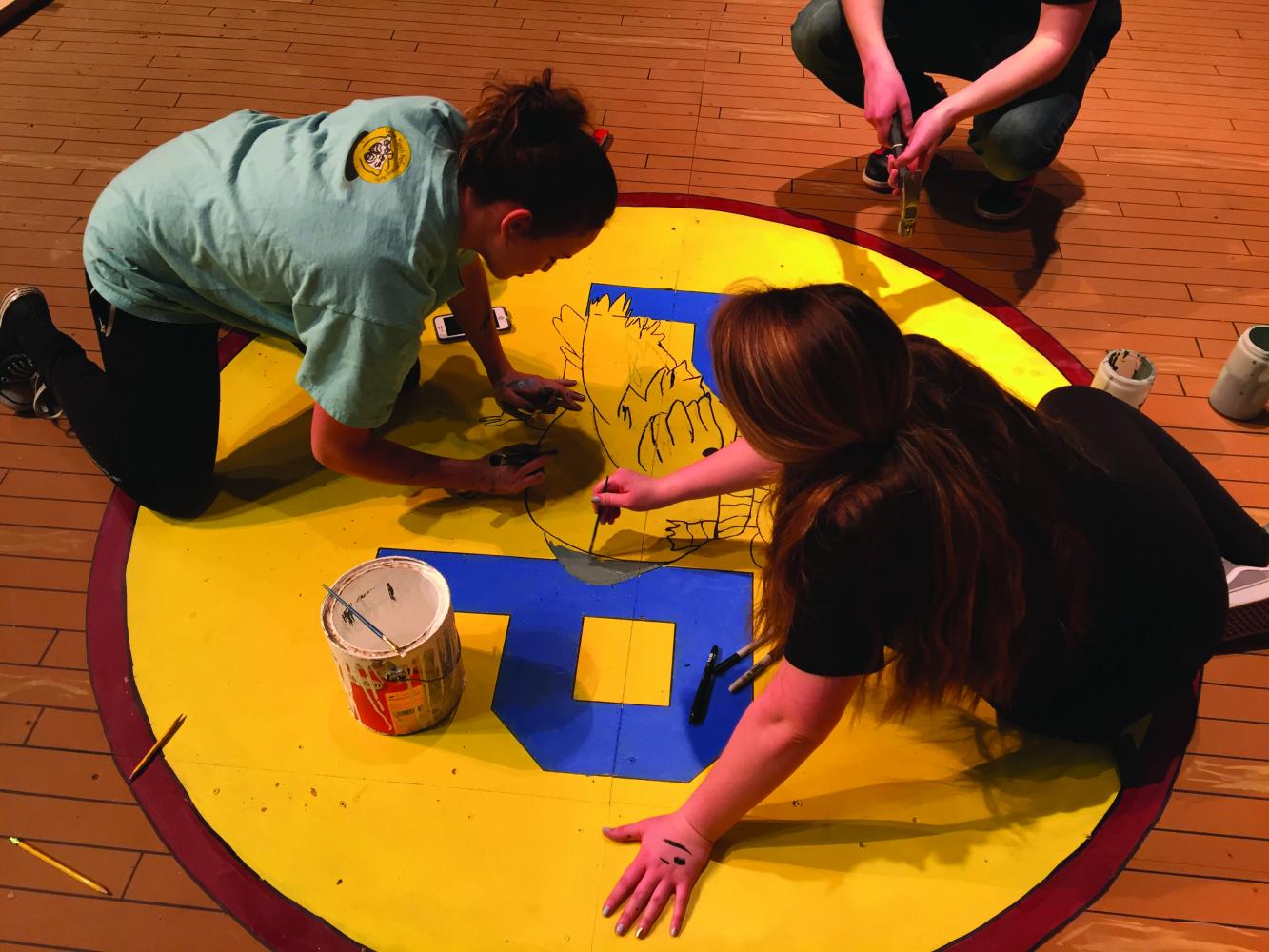The Sound (and light of support): behind the scenes with the makers of stage magic
August 27, 2017
As the lights in the theater dim and fade to black, the actress takes center stage. Mood lighting surrounds her, and a single spotlight shines down on her. As she sings, different sounds play in the background. Working with the actress, forces are at hand back stage working to bring this solo to life.
While people have always recognized the talent possessed by the actors on stage, it is the creative insight present within the technicians backstage that can sometimes be overlooked. As the actors rehearse their lines, these technicians choose lighting design, build props, and create sounds that bring to life the reality presented to the audience on opening night.
“To really kind of immerse yourself into a scene, everything around the actor needs to resemble the world they’re living in,” Rachel Moore, junior lighting technician said. “Stuff like lighting and sound really pull the actor away from just being on a stage to being in whatever world their character is in.”
According to Moore, when designing a show for lighting, she has multiple opportunities to be creative. Different colors paired with certain effects evoke a variety of moods. Pairing these things with what the actors are performing on stage create many different options, said Moore.
“The whole point is to go off what the actors are doing and accentuate it for the audience,” Moore said. “So getting artsy with the lighting really can do that.”
Multiple effects and intricate lighting are not the only way to create a theatrical experience for a packed audience, however. Michael Malek, junior sound designer, knows first hand how the power of sound elevates an experience in the theater.
“When I’m designing, I get a list of sound effects from the director,” Malek said. “But I can be creative with those specific instructions by taking that list and finding the sounds or even creating them myself. If we run into roadblocks, I’m allowed to think outside the box for a solution.”
Malek and Moore both agree that the creative thinking for a show is a constant process. According to Malek, during the months of rehearsal, inspiration for a show can strike at any time and place.
“Being creative and my work doesn’t stop necessarily when I leave the theatre,” Malek said. “Sometimes I’ll hear a sound, similar to what I want, at home or in class that I wasn’t even considering using until then. It’ll hit me as a perfect sound for the show.”
Pushing themselves to seek inspiration for the theater in the world around them has in general made them more creative individuals, according to Moore. Technical theater presents many different unpredictable problems that as managers they have to anticipate, said Moore.
“When those problems pop up, there isn’t a rulebook to follow,” Moore said. “I can do an awesome combination of things to come up with something more creative as a solution.”
Penny Burke, senior technician, can attest to the quickfire thinking Moore and Malek possess that make them successful managers.
“The thing with something like technical theatre is that there are a lot of unexpected problems. You never know when something can break. For lighting, a light can explode from getting super hot. Or the soundboard can lose power randomly. Both those things have actually happened during a show,” Burke said. “That’s when being creative comes into play. People like Rachel [Moore] and [Michael] Malek show their out of the box thinking when they come up with quickfire solutions to stuff like that.”
Approaching these problems with a unique eye has overall helped with creativity in all aspects of his life, Malek said. When faced with other projects or tasks, the insight he gained during a show travels with him outside of the performing arts center.
“[Tech] continually teaches me that not everything is a logical step by step,” Malek said. “Sometimes I need to be crafty with my methods whether it’s in tech, school, or personal life before I can get an amazing solution. I’m grateful that I can do that.”
